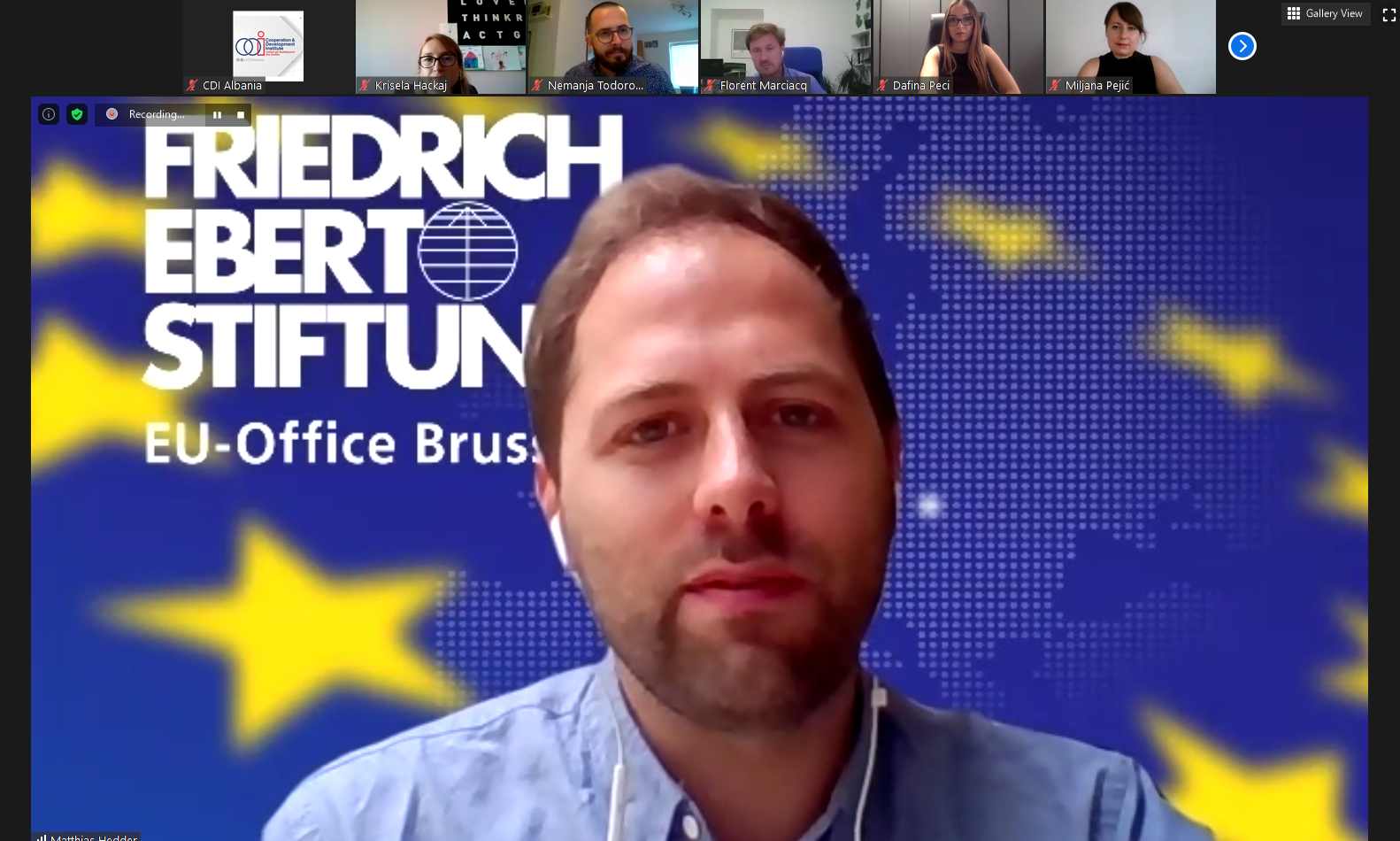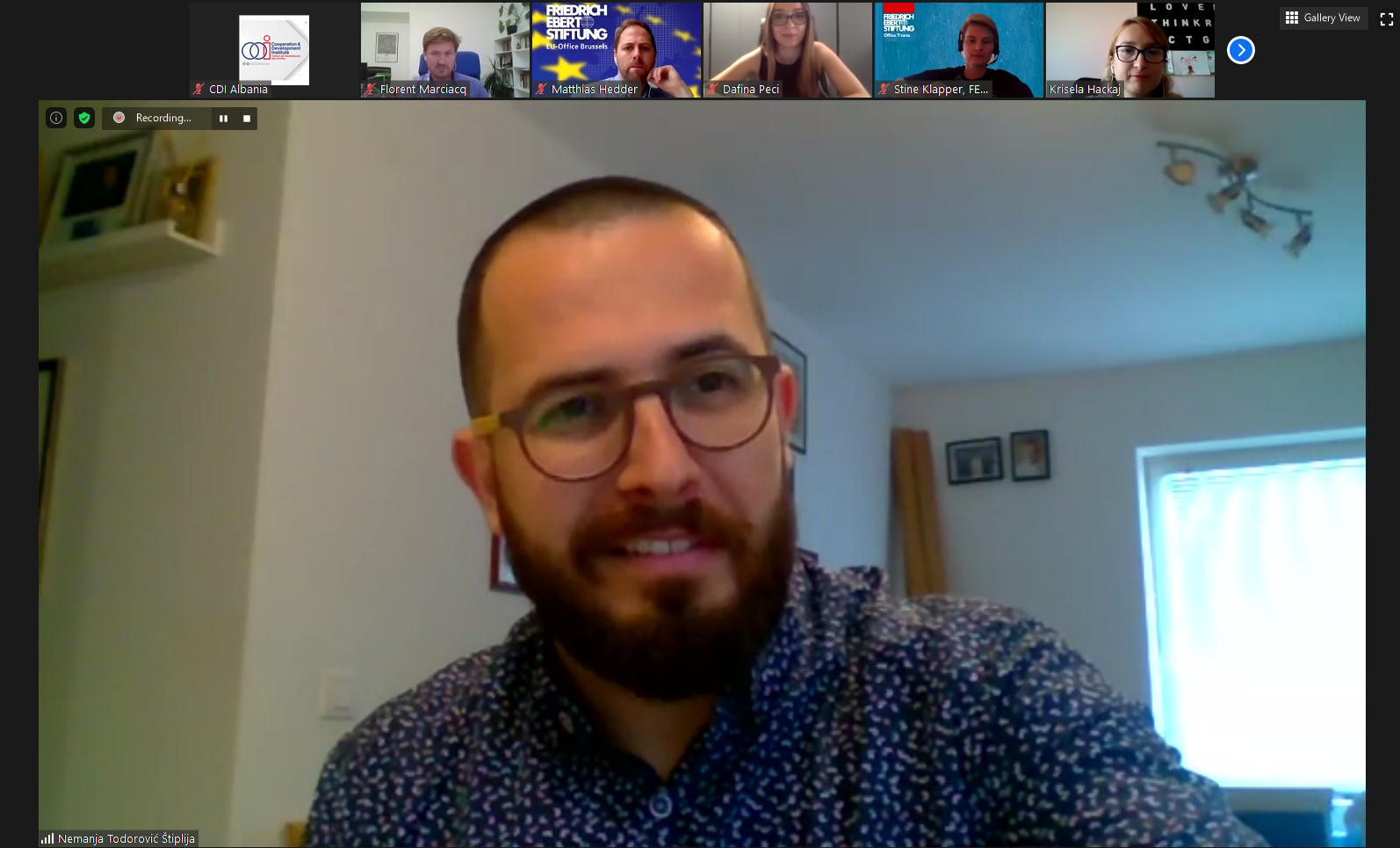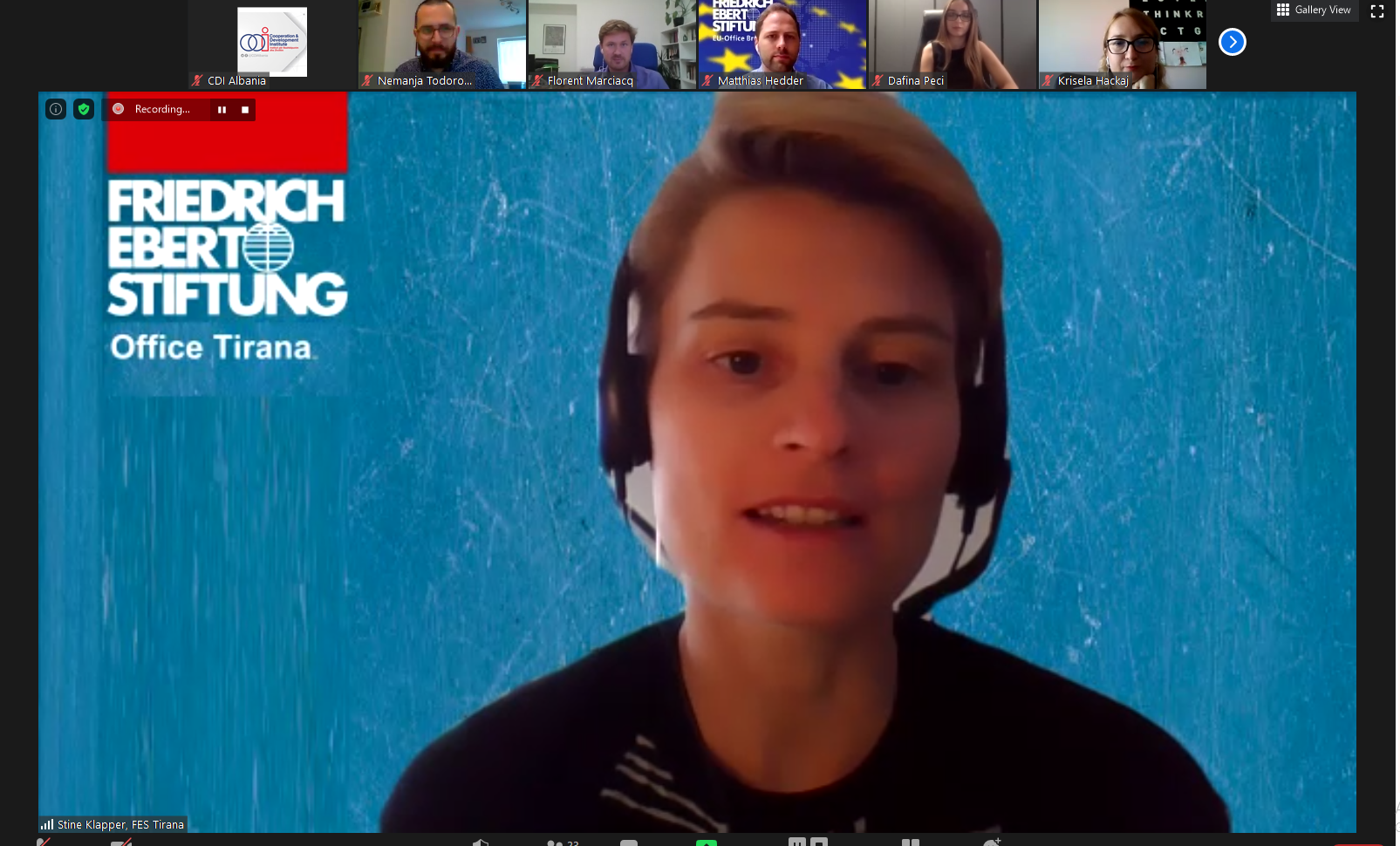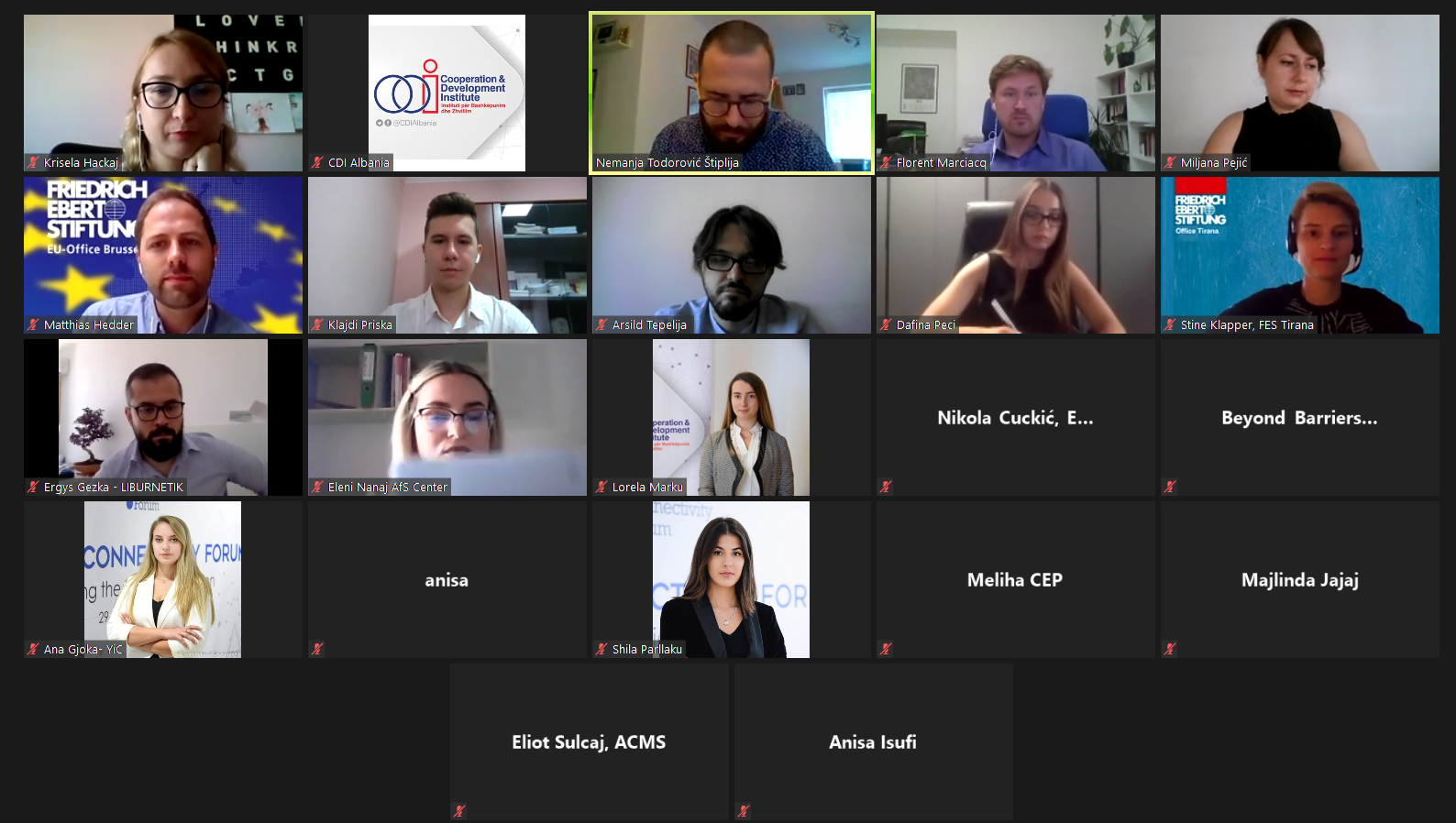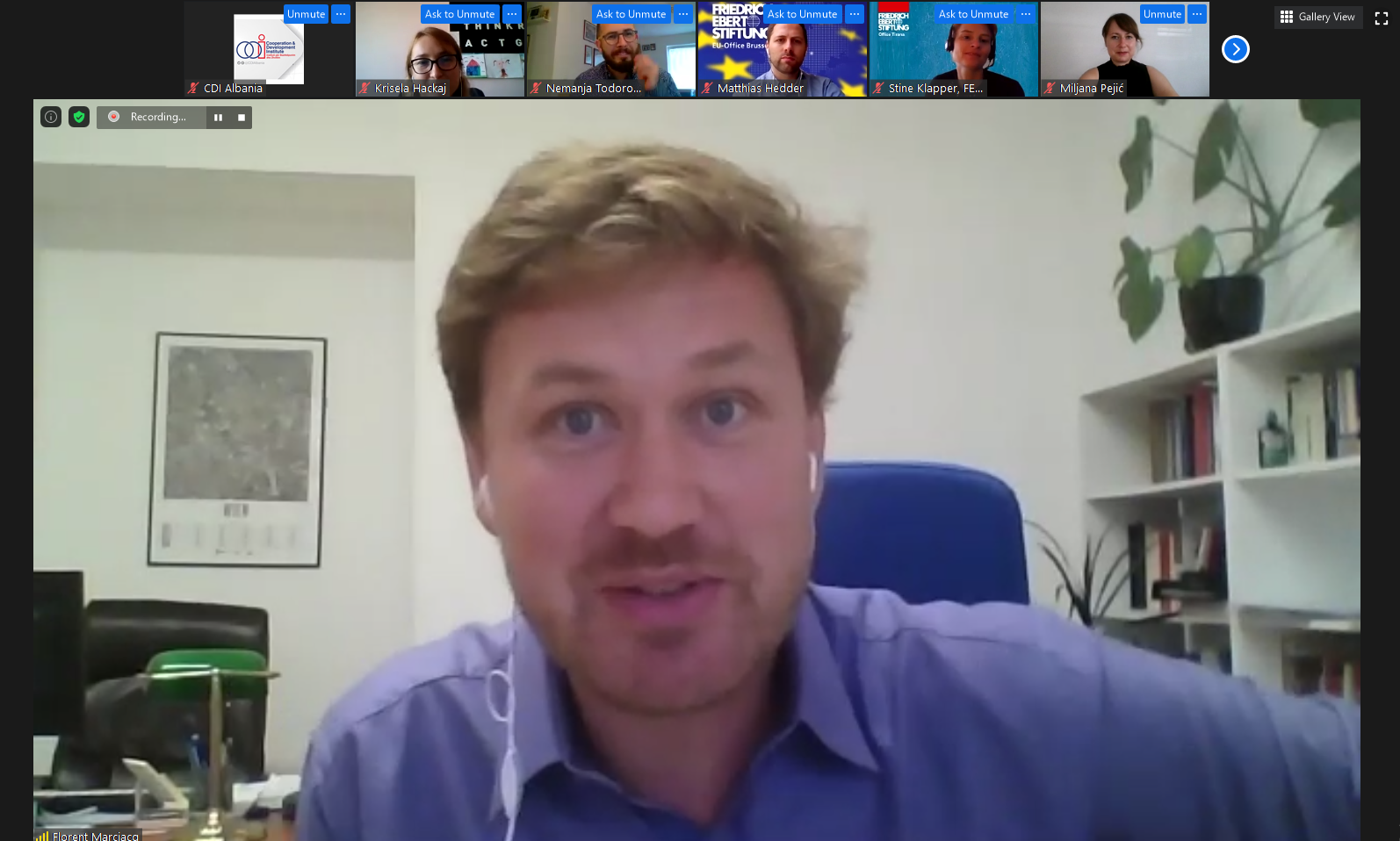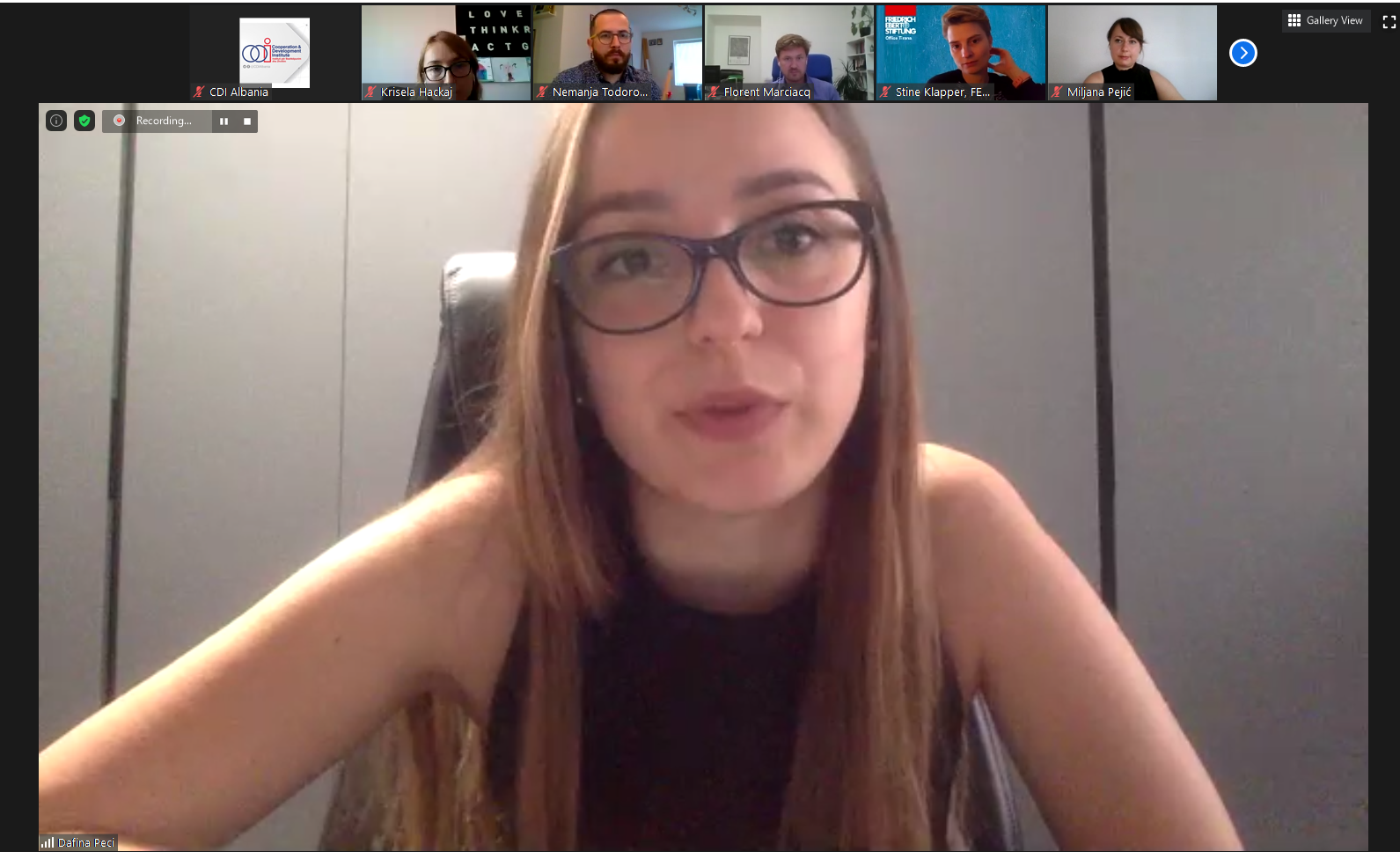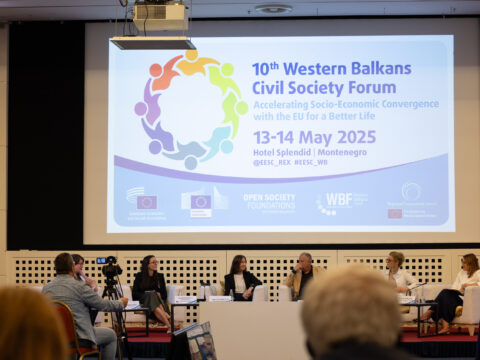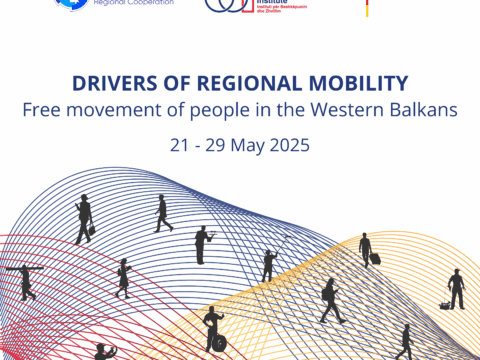29 June 2020
On June 29, 2020, Cooperation and Development Institute (CDI) organized in partnership with Friedrich-Ebert-Stiftung Tirana, Friedrich-Ebert-Stiftung (Brussels) and the European Western Balkans (Belgrade), the Online Discussion “EU Enlargement: For an enhanced role of youth and civil society”.
Under the moderation of Mr. Nemanja Todorović Štiplija, Editor in Chief of the European Western Balkans and through a discussion with active stakeholders in the EU integration process, this seminar offered the opportunity to take stock and look forward on the tools and mechanisms through which the re-invigorated EU support to the region provides an enhanced role of youth and civil society.
The panelists discussed also on the actual enlargement challenges by focusing on the new enlargement methodology and the inclusion of the Western Balkan countries and particularly the civil society organization in the main EU debates.
The event started with the welcoming remarks from Mr. Matthias Hedder, Deputy Head of Office FES Brussels and Ms. Stine Klapper, Director FES Tirana Office who emphasized once more the importance to include the civil society in the policymaking. Ms. Klapper also stated that: “All the different reforms that we will have to follow in the coming years depend not only on the policymakers but also on the society. In this regard, the policymakers need the expertize of the civil society.”
Furthermore, Ms. Krisela Hackaj, the Executive Director of Cooperation and Development Institute, added that young people and CSOs are very much interested in the European Integration topics, but they are not properly aware of the respective modalities of participation. This perspective was also shared by Ms. Dafina Peci, the Executive Director of National Youth Congress of Albania, who argued that there is a high level of enthusiasm from the young people towards the EU integration, but this enthusiasm is not backed up with proper information, knowledge and means of participation.
Regarding the new enlargement methodology, Mr. Florent Marciacq, the Deputy Secretary General, Austro-French Centre for Rapprochement in Europe (Vienna) explained that now the countries of the region can participate in EU programmes, can be more involved in certain sectorial policies, benefit from certain targeted finances, join meetings as observers, become more included in general. However, in this new methodology, CSOs are not mentioned or included.
Following the regional approach of CONNECT project, by sharing the best examples of Western Balkans frontrunners in the EU integration process, the participation of Ms. Miljana Pejić, Program Manager of National Youth Council of Serbia complemented this regional angle.
Regarding the current mechanisms for the participation of CSOs and especially youth in decision-making and further engage them in the EU integration process, Ms. Pejić added that the “Sustainability of the organizations regarding the financial issues but also resources wise is disabling the organizations to monitor, to have the watchdog activities and to be loud and vocal at the local level.”
The agenda of the event can be consulted here.
This activity was organized in the framework of the project “Applying Sector Approach to Civil Society Contribution in the EU Integration of Albania– CONNECT” funded by the European Union in Albania through the Ministry of Finance and Economy / CFCU Office and implemented by Cooperation and Development Institute in partnership with Centar savremene politike / European Western Balkans (Belgrade) and Friedrich-Ebert-Stiftung Tirana.
* This online event was the last activity in the framework of the project CONNECT, by concluding so, 18 successful months of local consultations and for creating a knowledge pool for evidence-based policy making in Albania, by making extensive use of best cases and experience of our neighbors and accession front-runners and building a solid and accessible body of knowledge at the service of accession negotiations stakeholders. The project will now shift into a Flagship Initiative, with the purpose of continuing to provide a broader perspective on the EU accession negotiation process and the institutional dynamics of this process.




